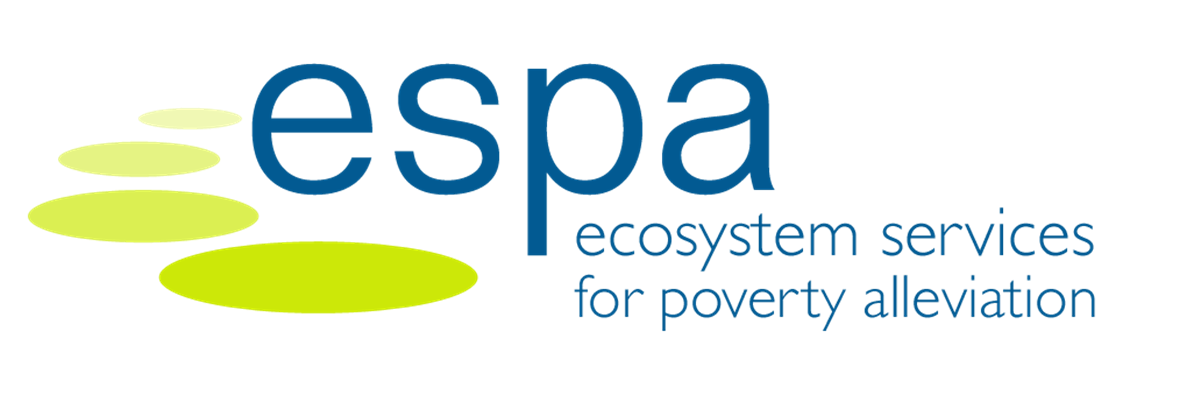Can Paying for Global Ecosystem Services reduce poverty? (P4GES)
(Ecosystem Services for Poverty Alleviation (ESPA) programme)
(P4GES)
 This is a collection of data from experiments and surveys carried out in the Ankeniheny Zahamena Forest Corridor - the remains of the evergreen forest of eastern Madagascar.
This is a collection of data from experiments and surveys carried out in the Ankeniheny Zahamena Forest Corridor - the remains of the evergreen forest of eastern Madagascar. The data comprise land use /cover classification, biomass estimates, forest inventory, site description, topographic information, site location, soil profile, above and below-ground carbon stocks, vegetation and indicator vegetation species and wood specific gravity.
It was produced by work package 4 of the P4GES (Can Paying for Global Ecosystem Services reduce poverty) project - a three year project (2013 - 2016) involving a consortium of eleven institutions in the UK, Madagascar, the USA, Switzerland and the Netherlands. The project focused on a single ecosystem (tropical forest) in a single low income country (Madagascar) to achieve a uniquely complete analysis in an effort to answer the central research question: "How can international ecosystem service payment schemes (specifically for carbon sequestration/storage and biodiversity conservation) most effectively reduce poverty in low income countries, given biophysical, economic and political realities"?
The project was funded by ESPA (Ecosystem Services for Poverty Alleviation) - a research programme supported by DFID, NERC and ESRC and accredited by LWEC.
This collection contains these resources
publishedDataset
Hydrometric data and stable isotope data for streamflow and rainfall in the Marolaona catchment, Madagascar, 2015-2016
publishedDataset
Soil hydrological characteristics for three areas in the Corridor Ankeniheny-Zahamena (CAZ), Madagascar
publishedDataset
Hydrological and meteorological data for three plots with different vegetation near Andasibe, Madagascar, 2014-2015
publishedDataset
Wood specific gravity for trees in Ankeniheny Zahamena forest corridor, Madagascar v2
publishedDataset
Conservation and development investments in the Corridor Ankeniheny-Zahamena (CAZ), Madagascar, 2007-2014
publishedDataset
Annual Forest Loss at 15m resolution in the Corridor Ankeniheny-Zahamena (CAZ), Madagascar, 2006-2014
publishedDataset
Very high resolution derived biomass estimates in the Corridor Ankeniheny-Zahamena (CAZ), Madagascar
publishedDataset
Very high resolution derived land cover/use classifications for the Corridor Ankeniheny-Zahamena (CAZ), Madagascar
publishedDataset
Topographical characteristics of sites in the Ankeniheny Zahamena forest corridor, Madagascar
publishedDataset
Belowground carbon stock data in the Ankeniheny Zahamena forest corridor, Madagascar
publishedDataset
Braun-Blanquet percentage vegetation cover and indicator species data in Ankeniheny Zahamena forest corridor, Madagascar
publishedDataset
Forest inventory, dendrometric tree characteristics and aboveground biomass data in Ankeniheny Zahamena forest corridor, Madagascar
publishedDataset
Site description and location of direct measured trees in the Ankeniheny Zahamena forest corridor, Madagascar
publishedDataset
Soil profile and chemistry data in the Ankeniheny Zahamena forest corridor, Madagascar

